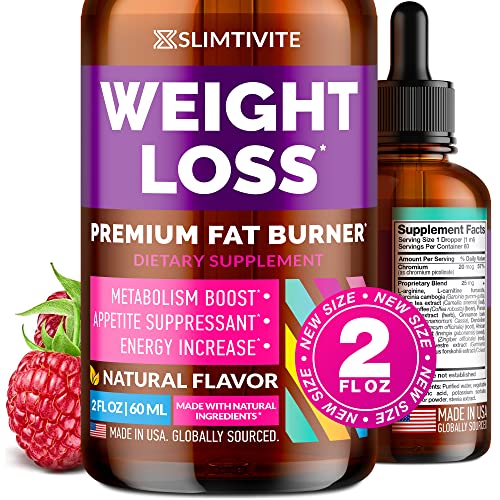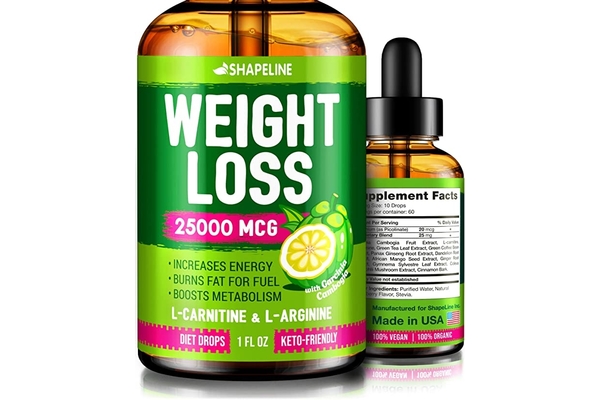Best Weight Loss Drops On Amazon

Urgent reports are surfacing concerning the safety and efficacy of weight loss drops marketed on Amazon. Consumers are advised to exercise extreme caution when considering these products due to unsubstantiated claims and potential health risks.
This article dives into the murky world of Amazon's weight loss drop market, exposing the lack of regulation, prevalence of deceptive marketing, and potential dangers lurking within these seemingly harmless bottles.
The Wild West of Weight Loss Supplements
Amazon's vast marketplace allows virtually anyone to sell products, including weight loss drops. This lack of stringent oversight has created an environment ripe for exploitation. Many sellers make outrageous claims about rapid weight loss without providing any scientific evidence to back them up.
The Federal Trade Commission (FTC) has repeatedly warned consumers about deceptive advertising in the weight loss supplement industry. They emphasize that "miracle" cures and promises of effortless weight loss are almost always false.
Red Flags and Warning Signs
Be wary of drops that promise rapid weight loss without diet or exercise. Anything claiming to "melt fat away" or "block carbs" without lifestyle changes is likely a scam. Look for phrases like "scientifically proven" without clear references to reputable studies.
Examine the ingredient list carefully. Many drops contain proprietary blends, which obscure the exact amounts of each ingredient. This makes it impossible to assess the safety or effectiveness of the product. The presence of stimulants or other potentially harmful substances should raise serious concerns.
Pay close attention to customer reviews. Look beyond the star rating and read the actual comments. Beware of reviews that seem overly enthusiastic or generic. Also, note any reports of side effects or lack of effectiveness.
Potential Health Risks
Weight loss drops can pose significant health risks. The Food and Drug Administration (FDA) does not regulate dietary supplements as strictly as prescription drugs. This means that products can be sold even if their safety and efficacy haven't been thoroughly tested.
Some drops contain ingredients that can interact with medications or exacerbate existing health conditions. Stimulants can cause anxiety, insomnia, and even heart problems. Others might contain unlisted ingredients that can be harmful.
The lack of regulation also means that products may be contaminated with heavy metals, pesticides, or other toxins. These contaminants can cause serious health problems, including liver damage, kidney damage, and neurological disorders.
Who is Responsible?
The responsibility for ensuring the safety of weight loss drops falls on both the manufacturers and the retailers. However, Amazon's role in policing its marketplace is often criticized as inadequate. While Amazon does remove some problematic products, many slip through the cracks.
The FTC and the FDA also play a crucial role in protecting consumers. They can take action against companies that make false or misleading claims or sell unsafe products. However, their resources are limited, and it's impossible to monitor every product on the market.
Ultimately, consumers must be vigilant and do their own research before buying any weight loss supplement.
Real Examples of Dangerous Drops
Several weight loss drops marketed on Amazon have been found to contain dangerous ingredients. One example is products containing DMAA (dimethylamylamine), a stimulant that has been linked to heart attacks and strokes.
Another concerning trend is the presence of unlisted pharmaceuticals in weight loss supplements. These drugs can have serious side effects and can interact with other medications. Consumers are often unaware that they are taking these drugs, putting them at risk.
A recent case involved a weight loss drop that claimed to contain only natural ingredients. However, lab tests revealed that it contained a prescription-strength diuretic, which can lead to dehydration and electrolyte imbalances.
Protecting Yourself From Scams
Consult with a healthcare professional before taking any weight loss supplement. A doctor or registered dietitian can help you determine if a product is safe and effective for you.
Be skeptical of products that make exaggerated claims. If it sounds too good to be true, it probably is. Look for products that are backed by scientific evidence and have been independently tested.
Report any suspected scams to the FTC or the FDA. Your report can help protect other consumers from being harmed.
Moving Forward
The issue of unsafe weight loss drops on Amazon requires a multi-faceted approach. Amazon needs to strengthen its oversight of its marketplace and take more aggressive action against sellers who make false or misleading claims.
The FTC and the FDA need to increase their enforcement efforts and crack down on companies that sell unsafe products. Consumers need to be educated about the risks of weight loss supplements and empowered to make informed decisions.
Ongoing investigations into the safety of various weight loss drops are underway. Check back for updates and stay informed to protect your health. Do not buy weight loss drops without consulting a doctor!


















